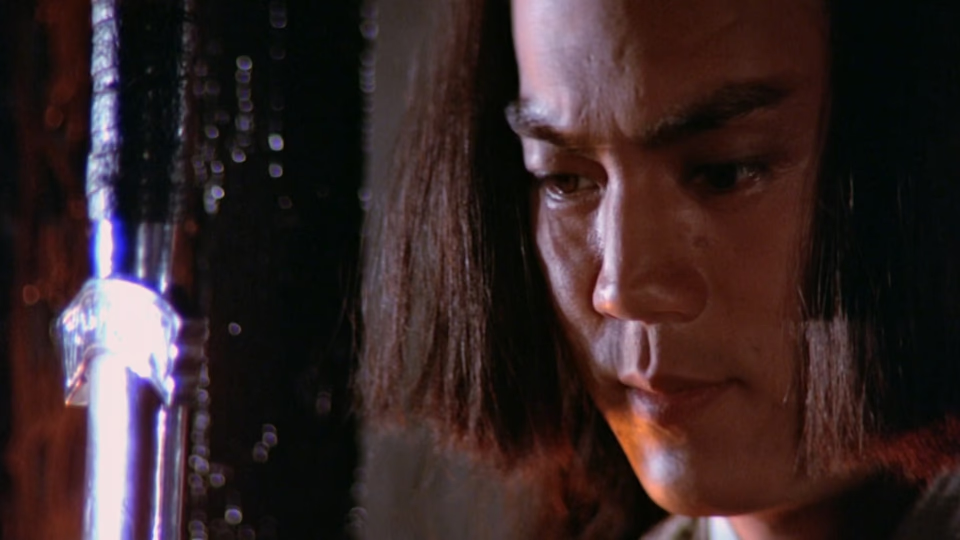Soul of the Sword

Ti Lung shines in Hua Shan’s Soul of the Sword, a 1978 martial arts film that overcomes its missteps largely due to his magnetic performance. As a nameless peasant who dedicates his life to swordsmanship in a quest to kill the “King of Swords” and claim the title, Ti Lung brings both youthful fire and steely determination to an underwritten part. His physical commitment and nuanced emotional range elevate material that might otherwise collapse under the weight of its own contradictions.
The film’s combat choreography delivers. Blood arcs through the air with operatic grandeur while combatants defy gravity with casual grace. Ti Lung moves through these sequences like a dancer interpreting violence, making even the most impossible acrobatics feel visceral. Yet Hua Shan repeatedly undermines his own greatest asset with bewildering directorial choices, positioning his camera behind guards, ladders, and bamboo stalks that obstruct rather than enhance the action. It’s filmmaking that seems actively hostile to its own strengths.
More troubling is the film’s romantic subplot, which begins with stalking and sexual assault and asks us to accept the victim’s overnight transformation into a willing lover. Chen-Chi Lin lacks the screen presence to sell this impossible emotional journey, leaving the entire storyline feeling like an uncomfortable afterthought. What makes this particularly frustrating is that Soul of the Sword hints at more complex psychological territory—the idea that Ti Lung’s character has channeled sexual impulses into his quest for martial supremacy. It’s a fascinating premise that the film acknowledges but never truly explores.
The screenplay’s other inconsistencies—like “Eight Swordsmen” who arrive without swords, or Ti Lung’s memorable taunt about an opponent’s “long but flaccid” sword—suggest either translation issues or a film uncertain of its own tone. These moments of unintentional comedy puncture the film’s more serious ambitions, though they also provide welcome relief from the intensity of Ti Lung’s murderous mission.
Genre veterans will anticipate the third-act revelations, but Hua Shan wisely focuses on Ti Lung’s reactions rather than the mechanics of surprise. This character-driven approach allows the film’s best performer to carry us through familiar territory with genuine emotional weight.
Soul of the Sword represents Hong Kong martial arts cinema at a crossroads—reaching for thematic depth while still embracing exploitation elements, achieving moments of genuine artistry while stumbling over its own ambitions. It’s an uneven film elevated by Ti Lung’s magnetic performance and exceptional fight choreography, undermined by directorial choices that seem designed to frustrate rather than satisfy. For all its flaws, it offers glimpses of what martial arts cinema could achieve.